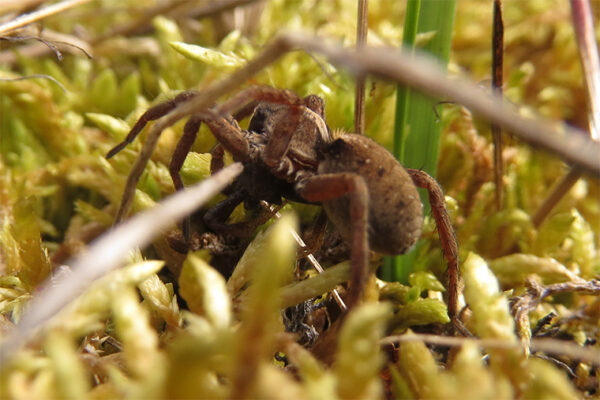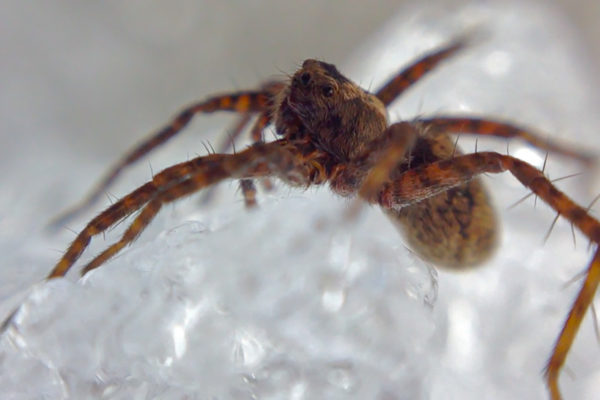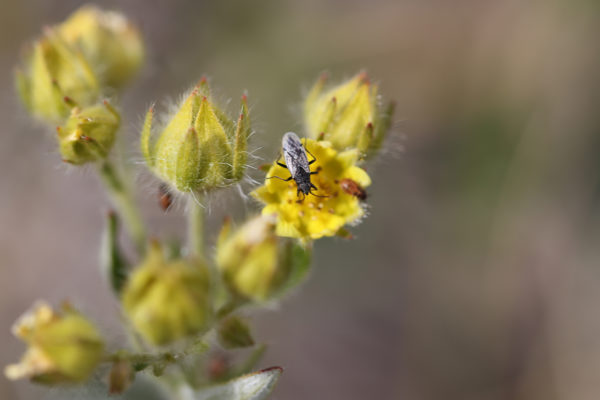Wolf spiders may turn to cannibalism in a warming Arctic
A study by biologist Amanda Koltz in Arts & Sciences at Washington University in St. Louis suggests that as female wolf spiders become larger and produce more offspring, competition among them increases — triggering higher rates of cannibalism and reducing the number of young spiders that survive to adulthood.
Warming alters predator-prey interactions in the Arctic
Under warming conditions, Arctic wolf spiders’ tastes in prey might be changing, according to new research by biologist Amanda Koltz in Arts & Sciences — initiating a new cascade of food web interactions that could potentially alleviate some impacts of global warming.
Bugged out by climate change
Warmer summer and fall seasons and fewer winter freeze-thaw events have led to changes in the relative numbers of different types of bugs in the Arctic, says Amanda Koltz, a postdoctoral fellow in Arts & Sciences. The study relies on the longest-standing, most comprehensive data set on arctic arthropods in the world today: a catalogue of almost 600,000 flies, wasps, spiders and other creepy-crawlies collected at the Zackenberg field station on the northeast coast of Greenland from 1996-2014.


